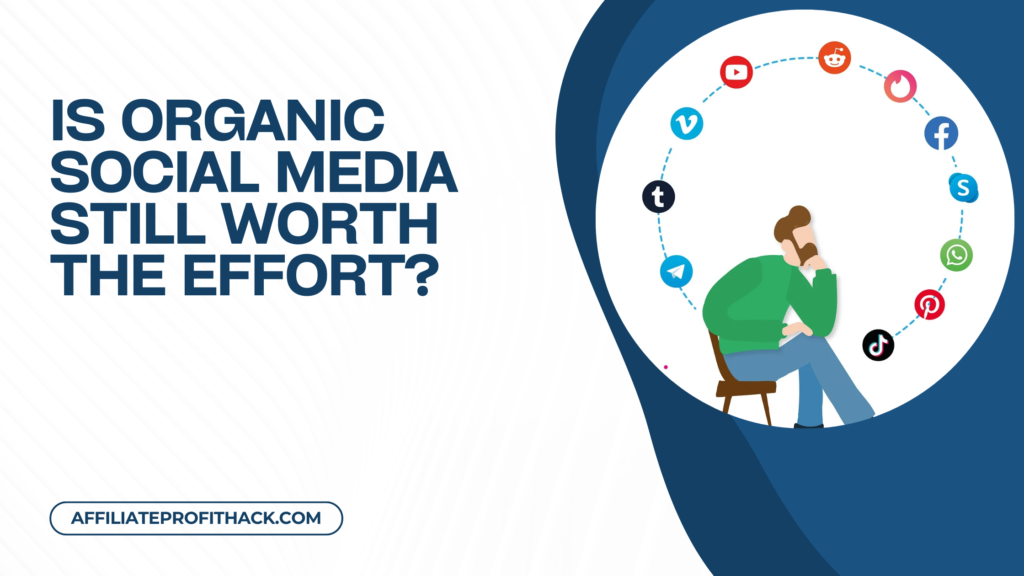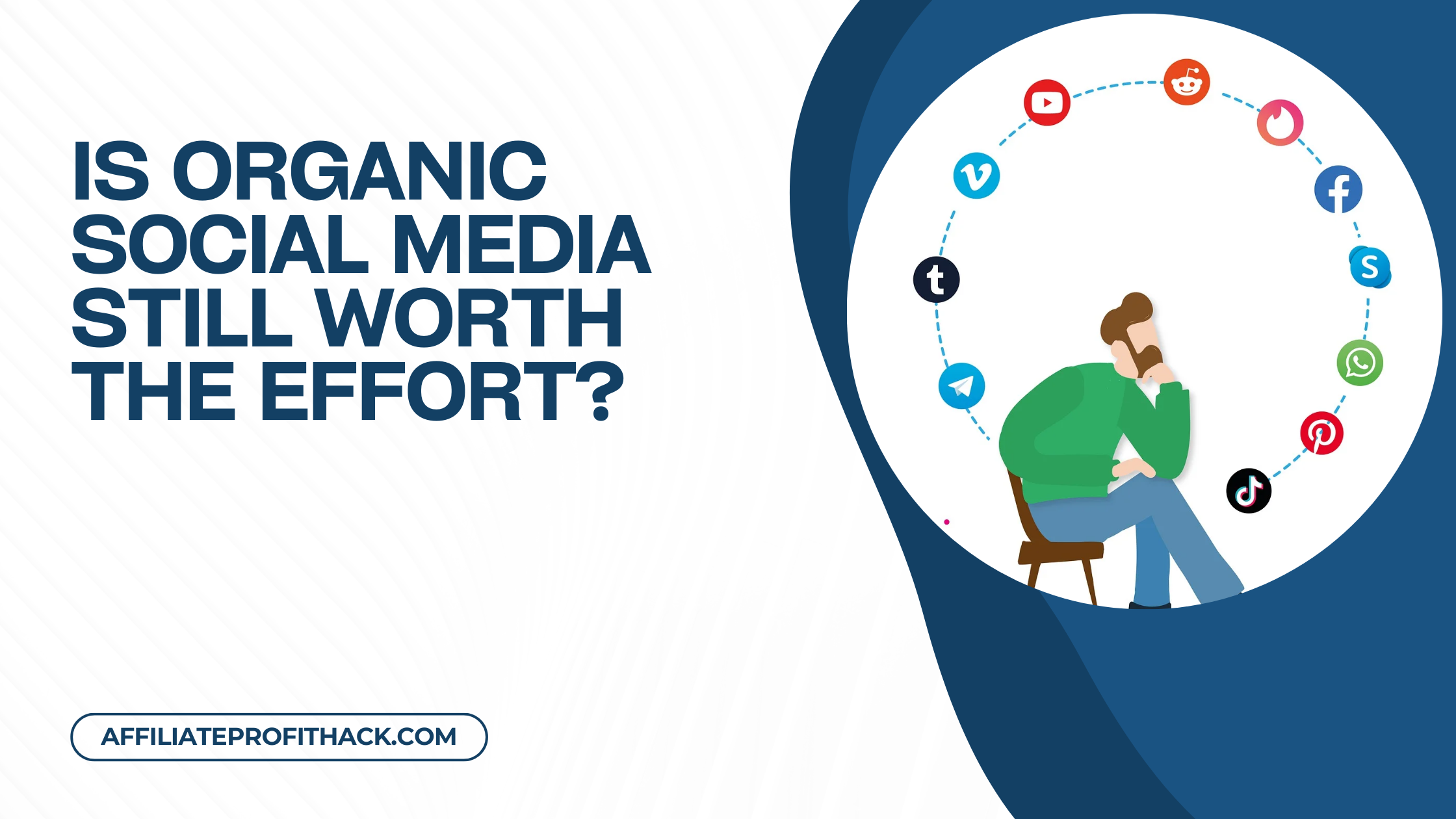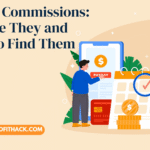Welcome to my article “Is Organic Social Media Still Worth the Effort?”.
Organic social media—once the golden ticket to growing your brand online—has taken quite the beating over the years. Algorithms have tightened their grip, turning what used to feel like a wide-open highway into a crowded alley with traffic cops (read: platform algorithms) at every turn. If you’ve noticed your posts barely scraping the surface of your audience’s feeds, you’re not alone. Many brands are left wondering, “Why am I spending hours crafting posts that only my mom and three loyal fans see?”
In this blog, we will dive into the real pros and cons of organic social media, who can benefit most from it, and whether it still deserves a spot in your marketing toolbox. Spoiler alert: It might not be a total waste of time (if you know how to use it right). Plus, we’ll toss in some practical tips to help you maximize your impact without feeling like you’re shouting into the void. Let’s get into it!
My Best Recommended & Proven Way to Make $100-$300 Daily – Watch This FREE Video to START >>>

The Evolution of Organic Social Media
Organic social media, once the belle of the marketing ball, has undergone quite the glow-down over the years. Back in the good ol’ days (circa 2010), a brand could post a cat meme or a quirky caption, and voilà—likes, comments, and shares would pour in faster than you could say, “viral content.” It was a simpler time when platforms like Facebook and Instagram were less interested in monetizing your reach and more focused on keeping things fun and free. Ah, the memories.
Then came the algorithms—cue the dramatic music. As platforms grew and user bases exploded, social media giants realized they could make a pretty penny (or a few billion) by prioritizing paid content. Organic reach started shrinking like your favorite sweater in the dryer. Facebook, for example, went from showing your posts to a hefty chunk of your followers to… well, barely anyone unless you paid to boost it. Instagram soon followed suit, and let’s not even get started on Twitter/X, where the timeline feels like a chaotic mix of ads, promoted tweets, and Elon’s latest musings.
But it’s not all doom and gloom. While organic reach has taken a nosedive, the essence of what makes social media social hasn’t changed. Authentic engagement, relationship-building, and community creation are still alive and well—just harder to achieve. The platforms want your content to feel like a conversation, not a sales pitch. And the audience? They’re savvier than ever, sniffing out inauthenticity like a bloodhound on a scent trail.
Today, organic social media is less about instant gratification and more about playing the long game. It’s a marathon, not a sprint—an ever-evolving space where creativity, consistency, and a sprinkle of strategy can still win hearts (and followers). Sure, it’s no longer the easy street it once was, but for brands willing to adapt, the journey is still worth it.
The Pros of Organic Social Media
Organic social media might not be the sprinter it once was, but it’s still the marathon runner of digital marketing. Sure, the flashy allure of paid ads might grab attention faster, but there’s something uniquely rewarding about growing your presence the old-fashioned way: with authenticity, creativity, and a good dash of perseverance. Here are the reasons why organic social media still deserves its time in the spotlight.
1. Building Trust and Authentic Relationships
People don’t go on social media to get sold to—they go to connect, laugh, cry over adorable puppy videos, and occasionally argue in the comment section. Organic content lets you join the conversation without shouting, “BUY NOW!” in all caps. It’s a softer sell, one that builds trust over time. By sharing behind-the-scenes glimpses, customer stories, or even just a clever meme, you can create a human connection that no ad budget can buy.
2. Cost-Effective for Tight Budgets
Let’s face it—paid campaigns can eat through your budget faster than your favorite guilty-pleasure delivery app. Organic social, on the other hand, costs time and creativity rather than dollars. For startups, small businesses, or anyone looking to stretch their marketing spend, it’s a budget-friendly way to start building a presence. You might not go viral overnight, but with consistent effort, the results can add up.
My Best Recommended & Proven Way to Make $100-$300 Daily – Watch This FREE Video to START >>>
3. Long-Term Brand Building
Paid ads might win you quick sales, but organic efforts are the unsung heroes of brand building. When you show up consistently with valuable, engaging content, people start to recognize your voice, your values, and your vibe. Over time, this creates a loyal community that sticks around—even when your ad budget runs dry.
4. A Perfect Testing Ground
Not sure if that snazzy new video or pun-filled caption will resonate with your audience? Test it out organically! Organic social is like a low-stakes playground where you can experiment with different types of content and see what clicks. The insights you gain can then be supercharged in your paid campaigns.
5. Supporting Other Marketing Channels
Think of organic social media as the glue that holds your other marketing efforts together. It amplifies your blog posts, showcases your products, and engages with your email subscribers in a more casual way. It’s also a great way to keep your brand top-of-mind between sales pitches.
In short, while organic social media might not be the fast-track to fame it once was, it still has plenty of perks. It’s the slow-and-steady approach to building meaningful connections, establishing credibility, and creating a brand that people love—not just follow.
The Challenges of Organic Social Media
Organic social media—the marketing equivalent of assembling IKEA furniture without the instructions. It seems straightforward at first: post, engage, repeat. But as many brands quickly realize, the reality is far more complicated. While the benefits of organic social are undeniable, it comes with its fair share of challenges that can make even the savviest marketers question their life choices.
1. Declining Organic Reach: The Algorithm’s Wrath
Once upon a time, hitting “publish” meant your post would land in front of a good chunk of your followers. Now? You’re lucky if it reaches your second cousin who “likes” everything you post. Platforms like Facebook and Instagram have slashed organic reach to single digits for most accounts, making it harder than ever to get eyeballs on your content. The algorithms seem to favor paid content, viral trends, and, apparently, videos of dancing pets (seriously, what’s their secret?).
2. Time-Intensive Growth
Building an organic social presence is like growing a garden—it takes time, patience, and a lot of pruning. Unlike paid ads, which can deliver instant results, organic strategies require consistent posting, community engagement, and creative energy. For small teams or solopreneurs juggling a million other tasks, it can feel like a full-time job. And just when you think you’re making progress, the algorithm changes (again), and it’s back to square one.
3. Dependence on Platform Algorithms
Speaking of algorithms, let’s talk about the elephant in the room. Organic social success often hinges on appeasing these ever-changing, mysterious codes. What works today might flop tomorrow, and staying ahead can feel like a never-ending guessing game. Want to keep up? Better carve out time to read all the platform updates, experiment endlessly, and pray to the algorithm gods.
4. Difficulty Measuring ROI
“Okay, but is it working?” That’s the million-dollar question every marketer gets asked about organic social media. Unfortunately, the answer isn’t always crystal clear. Unlike paid ads, which come with detailed performance metrics, organic social often produces softer outcomes like brand awareness or audience trust. These are valuable, but harder to quantify. Explaining this to stakeholders who just want to see sales numbers? Not exactly fun.
5. Oversaturation of Content
Social media is noisier than a crowded stadium, and standing out can feel like screaming into the void. With millions of posts published daily, competing for attention is a steep uphill climb. Plus, audiences are savvier than ever—they can spot inauthenticity or repetitive content a mile away. To break through the clutter, your content has to be consistently unique, engaging, and aligned with your audience’s interests. No pressure.
Despite these hurdles, organic social media isn’t a lost cause—it’s just a more complex game than it used to be. The key is knowing the challenges, managing expectations, and finding ways to work smarter (not harder). With the right strategy and a little perseverance, those organic seeds can still grow into something pretty incredible.
When Organic Social Media Makes Sense
Organic social media may not be the turbo-charged sports car of digital marketing, but it’s a reliable hybrid—efficient, versatile, and perfect for the right conditions. While it’s not always the go-to solution for every marketing need, there are situations where organic efforts shine brighter than a viral TikTok trend. Let’s explore when sticking with organic social media isn’t just sensible but downright strategic.
1. Reaching Niche or Local Audiences
If your target audience isn’t the entire internet (and thank goodness for that), organic social media can be your best friend. Whether you’re a local coffee shop, a boutique pet store, or a brand catering to a specific industry, organic posts can help you connect with your community in a way that feels personal. Hashtags, geotags, and local shout-outs are goldmines for engagement with smaller, dedicated groups. Think of it as tailoring your content to the VIP section instead of shouting into the crowded general admission.
2. Establishing Thought Leadership
For brands or individuals looking to position themselves as experts, organic social media is a powerhouse. Platforms like LinkedIn and Twitter/X are perfect for sharing insights, trends, and opinions that establish your credibility. Sure, a paid campaign can promote your content, but nothing beats the authenticity of consistently delivering valuable ideas. Organic social allows you to join conversations in your industry, connect with peers, and build a reputation one post at a time—no flashy ads required.
My Best Recommended & Proven Way to Make $100-$300 Daily – Watch This FREE Video to START >>>
3. Strengthening Customer Relationships
Customers don’t just want to buy from a brand; they want to feel connected to it. Organic social media gives you the chance to interact directly with your audience through comments, DMs, and engaging posts. Answering questions, reposting user-generated content, and even acknowledging a funny meme about your brand can go a long way in building loyalty. Paid ads might win clicks, but organic interactions win hearts.
4. Amplifying Your Other Marketing Channels
Organic social media is the glue that holds your broader marketing strategy together. Launching a new product? Share sneak peeks or behind-the-scenes content organically. Publishing a killer blog post? Use your social channels to promote it. Organic posts are a natural way to cross-promote content, create touchpoints with your audience, and keep your brand visible without pushing the hard sell. It’s like the friendly neighbor who shows up to help—not the door-to-door salesperson with the clipboard.
5. When You’re Playing the Long Game
Not every marketing strategy needs to deliver results yesterday. Organic social is for brands willing to plant seeds today and nurture them for future growth. If you’re focused on brand awareness, audience trust, or building a strong online presence over time, organic social is a smart investment. It’s not about immediate ROI—it’s about laying the foundation for lasting connections.
Organic social media might not be a one-size-fits-all solution, but for brands willing to put in the effort, it can be a game-changer. It’s all about understanding when it makes sense, leaning into its strengths, and using it as a complement to your broader marketing goals. In the right situations, organic social isn’t just worth the effort—it’s a no-brainer.
Tips for Maximizing Organic Social Media Impact
Organic social media might feel like rolling a boulder uphill in an algorithm-dominated landscape, but with the right strategy, you can make the climb a whole lot easier—and more effective. The secret? Working smarter, not harder. Here are some tried-and-true tips to get the most out of your organic social efforts and have your content stand out in the crowded digital playground.
1. Focus on High-Quality, Value-Driven Content
It’s tempting to post for the sake of staying active, but social media audiences can spot fluff from a mile away. Instead of churning out mediocre posts, focus on creating content that truly offers value. Whether it’s a how-to guide, an inspirational story, or even a good laugh, aim to educate, entertain, or engage your audience. If your post doesn’t make someone stop scrolling, it’s time to rethink the approach.
2. Lean Into Video and Interactive Formats
Let’s face it: static posts are so last year. Video content, whether it’s a 15-second reel or a live Q&A, tends to perform better across most platforms. And don’t underestimate the power of interactive features like polls, quizzes, or question stickers. They not only boost engagement but also make your audience feel like they’re part of the conversation. Pro tip: If you’re camera-shy, start small—animated slideshows or behind-the-scenes clips work wonders too.
3. Be Consistent, Not Spammy
The key to organic growth is showing up regularly—but that doesn’t mean flooding your followers’ feeds. Create a posting schedule you can realistically stick to, whether it’s three times a week or daily. Consistency helps your audience know when to expect fresh content and keeps your brand top-of-mind without becoming overbearing.
4. Engage Like a Human, Not a Brand Bot
Organic social media isn’t a megaphone; it’s a two-way street. Respond to comments, share user-generated content, and engage with your followers authentically. People appreciate brands that feel approachable and real, so don’t be afraid to let your personality shine through. Even a simple “Thanks for sharing!” or “We love this!” can make a big difference.
5. Optimize for Each Platform’s Unique Features
Each social platform is its own beast, with different rules and audiences. What works on Instagram might flop on LinkedIn, and vice versa. Tailor your content to fit the quirks of each platform—think hashtags and Stories for Instagram, text-heavy thought pieces for LinkedIn, and short, witty posts for Twitter/X. Knowing your platform’s strengths will maximize your reach and engagement.
6. Collaborate with Micro-Influencers and Advocates
Influencer marketing isn’t just for big-budget campaigns. Partnering with micro-influencers or engaging your most loyal fans can extend your organic reach without breaking the bank. These collaborations feel authentic and often deliver better engagement than traditional advertising. Plus, they can introduce your brand to a whole new audience.
7. Analyze, Adjust, Repeat
Data is your best friend when it comes to organic social success. Keep an eye on metrics like engagement rates, reach, and follower growth to understand what’s working (and what’s not). Use those insights to refine your strategy and double down on content that resonates. Remember, social media is as much about experimenting as it is about executing.
Organic social media may not have the instant gratification of paid ads, but with these tips in your toolbox, you can create a strategy that’s impactful, sustainable, and—dare we say—fun. It’s all about staying adaptable, authentic, and aligned with your audience’s needs.
Conclusion
Is organic social media still worth the effort? The answer, like most good things in life, is: it depends. It’s no longer the wild, anything-goes frontier it once was, where a single post could rocket your brand to stardom. Today, organic social requires patience, strategy, and a willingness to adapt to ever-changing algorithms and audience behaviors. But for those who can crack the code, the rewards are well worth it.
Think of organic social as the slow-brewing coffee of the digital marketing world. It might not give you the instant kick of an espresso shot (paid ads), but it delivers a rich, authentic flavor that builds over time. It’s the space where you cultivate trust, nurture relationships, and showcase the human side of your brand—something that can’t be bought, no matter how much you spend on ads.
My Best Recommended & Proven Way to Make $100-$300 Daily – Watch This FREE Video to START >>>
That said, it’s important to be realistic. Organic social media isn’t a one-size-fits-all solution or a magic bullet for all your marketing goals. For brands looking for immediate ROI or massive reach, a balanced strategy that combines organic and paid efforts is often the smartest route. But if your focus is on long-term brand building, authentic engagement, and growing a loyal community, organic social media is absolutely worth the effort.
Ultimately, the key is knowing your audience, setting clear goals, and being willing to pivot when needed. Organic social media is less about going viral and more about showing up, creating value, and sticking around for the long haul. So, keep posting, keep engaging, and who knows? With the right strategy, you might just create the kind of social magic that money can’t buy.
Thank you for reading my article “Is Organic Social Media Still Worth the Effort?” till the end. Hope it helped you. See you with another article.










